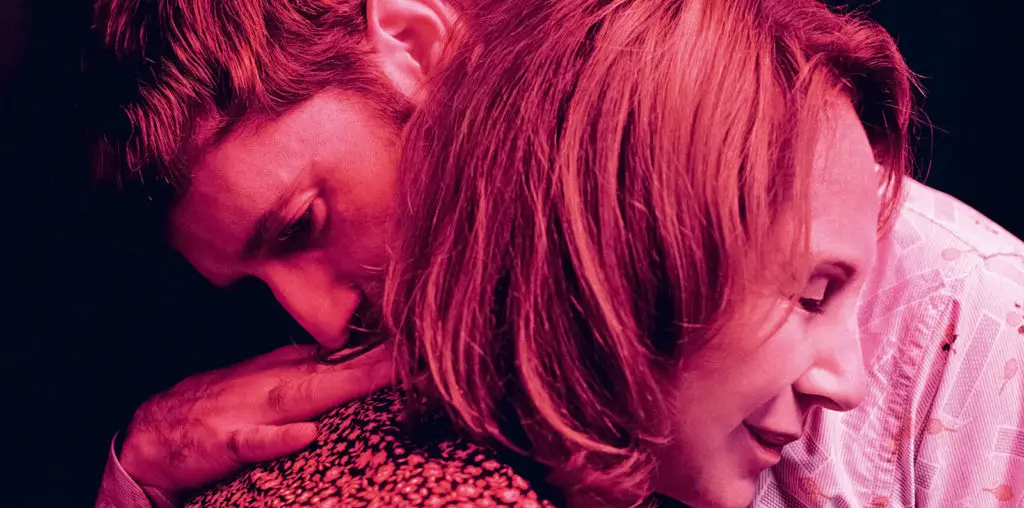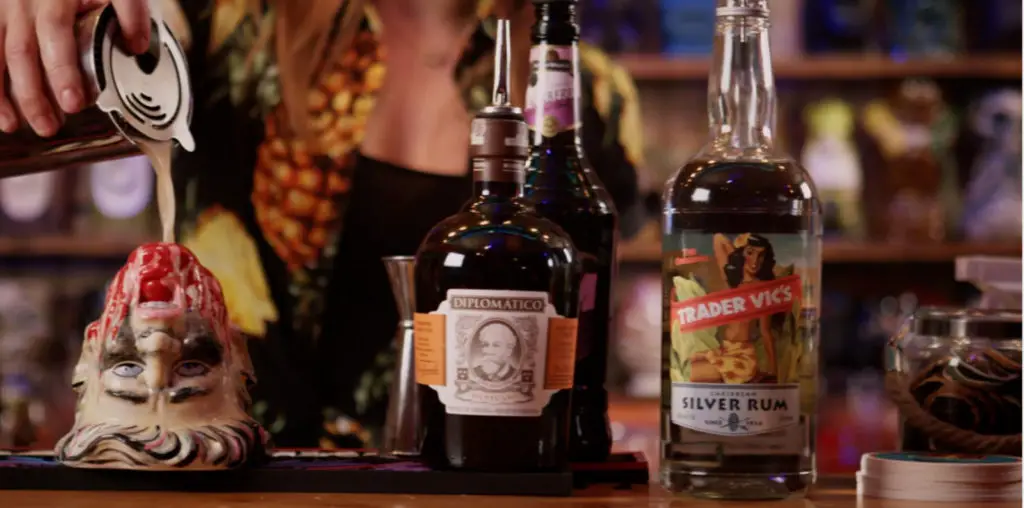
Paul Thomas Anderson’s The Master, to set out a simple synopsis, follows the journey of former Naval seaman and opportunist moonshiner, Freddie Quells (Joaquin Phoenix), as he navigates his damaged life, eventually finding shelter with Lancaster Dodd (Philip Seymour Hoffman), an author who has formed his own religion, known as the Cause, in an effort to free humanity from the inherent shortcomings that hold everyone back from happiness and potential. Freddie’s life prior to meeting Dodd is one of a lost, sex-obsessed, World War II combat-addled loner, prone to getting so drunk he passes out or so randomly angry that he erupts in fits of violence and rage. The two meet when Freddie stows away on Dodd’s boat, which is heading out to sea for Dodd’s daughter Elizabeth’s (Ambyr Childers) wedding, and the two come to an agreement: Freddie can stay on-board, as long as Freddie can provide another batch of the moonshine that Dodd found on Freddie’s passed-out person (perhaps if he knew the types of things that Freddie includes in his drink concoctions, like paint thinner, he’d be more reluctant to drink it).
During the trip at sea, as Dodd begins to work on Freddie with his methods for finding happiness and calm in one’s life, which Dodd calls “processing,” the busted-up Freddie becomes more than just Dodd’s moonshine supplier. Now Dodd has a challenge on his hands, and Freddie has someone looking out for him. While those in the Cause may refer to Dodd as “master,” it is never more apparent than in his relationship with Freddie, who has become Dodd’s loyal dog; man’s best friend, as it were.
Not everyone embraces Freddie, however, and Dodd’s wife Peggy (Amy Adams) is particularly distrusting. Considering the Cause is often under attack for its methods, and Dodd publicly and popularly regarded as nothing more than a cult leader, Peggy finds Freddie an unnecessary risk to the family, and the Cause. Still, Dodd remains attached to Freddie, almost irrationally so, as he finishes work on his latest book.
For a film that is as ambiguous as it winds up being, it is surprisingly straightforward; it presents events in a very matter-of-fact manner, and the question of whether it means anything comes down to whether we think it does, want it to or even need it to mean something. For example, everything that happens in this film could be exactly what happens, without layered depth or hidden meaning. At the same time, I’m debating with myself whether the film has a Vanilla Sky moment in it and, if it does, whether that moment comes in its most obvious placement or far sooner. Both interpretations could be “right.”
Likewise, the acting. There’s no denying that Joaquin Phoenix’s performance is riveting, but is it sheer brilliance, or the most perverted Popeye impression ever (and Philip Seymour Hoffman does have a little Wimpy-esque “I will gladly process you Tuesday for a swig of moonshine today” flavor to him)? Is it both? Regardless, it is intoxicating in its power, and you can’t look away. Phoenix’s Freddie may be the creepiest guy in the room, and in polite society, maybe folks take notice of him and talk about him behind his back, but you’re often not given license to just stare at him. The Master gives you that license without judgement, and lets you confirm your fears and impressions. The Cause is Dodd’s zoo, and Freddie is the main attraction.
Which brings us to another consideration of the film, the reasons that Dodd keeps someone as seemingly off-kilter and erratic as Freddie around. It is open to debate, of course, but for me Freddie presents a couple things. For one, Dodd is often heard talking about the importance of being Man, of being superior to animal urges and instincts. In that way, he’s like Dr. Moreau in Island of Lost Souls, convincing his Cause flock to ask themselves, “Are we not men?” even as they are tempted by all their base urges. Since he must maintain his appearance of civility, he cannot indulge himself, and while he openly chastises Freddie’s indiscretions, often they seem like half-hearted, playful reprimands, like one would treat a pet they love, but who keeps doing stupid things. Of course, the message gets muddled then, as the pet knows it’s doing something wrong, but the owner doesn’t really seem that upset by it. So maybe it’s okay?
The other thing Freddie represents is the ultimate proof of whether Dodd’s techniques work. If someone as rough and damaged as Freddie can come out of the Cause’s processing as a “cured” man, happy and more able to provide for society, is that not the best advertisement for the Cause’s methods? And while others in the Cause may seem to have more pragmatic ideas behind the methods, and whether they work and whether that actually even matters, Dodd seems to be believe in what he’s saying, so much so that to “fail” with Freddie is more than just an embarrassment, it can shake Dodd to his very foundation, make him question his own faith.
So it is important for Dodd that Freddie be rehabilitated, domesticated, but at the same time if that happens, Dodd loses out on the enjoyment he gets out of being vicariously able to enjoy Freddie’s animal impulses for sex and violence. Dodd is stuck in the middle, and again that muddled message may be the reason he does or does not ultimately get through to Freddie.
But considering Freddie gets the majority of the screen time, and his story begins and ends independent of Dodd’s arrival and departure, is it all just a major misdirect? Is the titular “master” not Dodd, but Freddie? And what is Freddie the master of? Is it something deeper, or is it the obvious and I’m looking too hard?
That’s the real beauty of The Master at work, it can be any and all of these things. In less accomplished cinematic hands, this level of ambiguity can often be dismissed as a filmmaker just not knowing what to say, or at least not willing to make choices. In more damning criticism, it can be called “lazy.” Ambiguity for ambiguity’s sake isn’t a sure thing, basically, but when it works, like it does here, it elevates the entire experience.
In the end, The Master is an incredible film, in all aspects. The cinematography is wonderful and frame-worthy, the score is appropriately haunting and infectious (you walk away hearing it long after the film is over, though I don’t know that it’s always so clear that what you’re hearing is still the score, or how your brain tweaked and processed it in combination with the images; I believe there is a difference) and the acting never hits a false note at any point, from anyone (not just the big names). Whether or not it means anything more than what it presents is up to you, and while I think interpretation of story and intent will be the deciding factor, on a personal level, on whether this truly is a masterpiece or not, I do not think the level of skill and talent in the look, sound, performances and direction are all that open to debate; they are magnificent. Sound and fury signifying nothing? Up to you.

